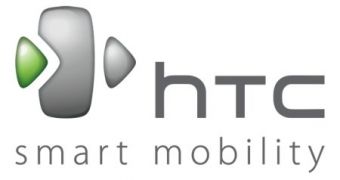Taiwanese handset maker HTC Corporation is reportedly seeking to strengthen its position on the Windows Mobile phone market, remaining faithful to its long-term partner Microsoft. Thus, the company does not intend to come to the market with an Android version of its newly unveiled high-end HTC HD2, which is powered by Microsoft's Windows Mobile 6.5 operating system.
As many of you might already know, for a long time HTC has been the only mobile phone maker to release an Android-based mobile phone. Following the first such device, the HTC Dream, the company launched two more Android phones, the HTC Magic and HTC Hero, and it was only then that other companies also started to deliver their own phones based on Google's OS.
However, HTC is also an important player in the Windows Mobile segment of the market, as it accounts for the largest number of devices shipped with Microsoft's operating system on board. Although the company announced not too long ago that almost half of its mobile phones in 2010 would be based on the Android platform, it seems that it is still in love with Windows Mobile, thus offering the HD2 with this OS only.
“Technically, we could make the HD2 an Android phone, but I have to take care of Windows Mobile,” is what Peter Chou, HTC's chief executive and president, seems to have stated, according to a recent post on Forbes. The company has lately been rumored to plan on launching a 1GHz Android phone, the HTC Dragon, yet it seems that this device either will be different from the HTC HD2 (which also includes such a processor) or will not come to the market at all.
HTC has started to become a very popular vendor on the market due to the launch of Android handsets, but also because of the appeal some of its Windows Mobile phones (like Touch Pro2 or HD2) come with. It also launched an ad campaign meant to show its commitment towards enhancing the user experience with its phones. “Whether we can compete with [companies like Nokia] on scale is a different subject, but our profile needs to be viewed as first tier,” Chou says. “It's very hard to use a second-tier brand to compete with these companies.”

 14 DAY TRIAL //
14 DAY TRIAL //